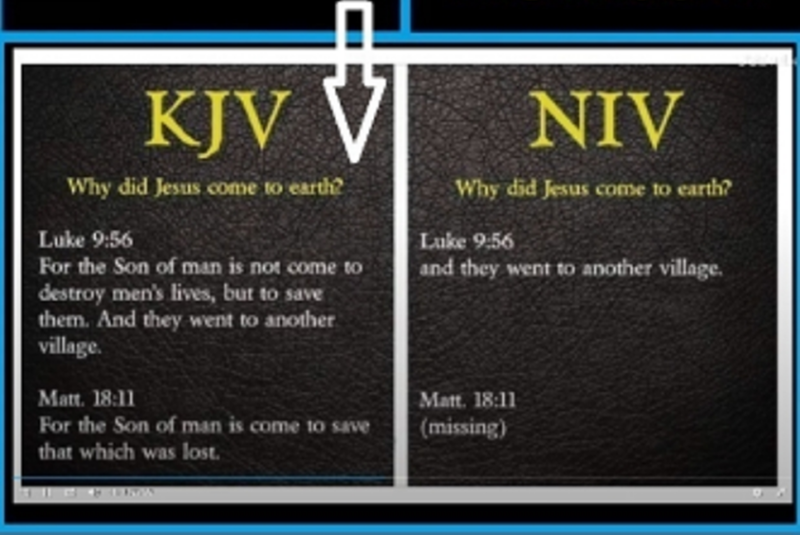How did the first followers of the way know about a Messiah coming when there was no new testament written yet?
All things that Jesus fulfilled in his ministry were of the words of the prophets. For there was no new testament in His days and the Jews who followed Him had faith He was the Messiah for He had come fulfilling the prophecies that were written about His coming. A good example is found in Luke chapter 7 when John the Baptist sent two of his disciples to ask the question if he was the one that was said to come or should they look for another? The Lord didn’t tell them he was, He showed them… for he healed the sick, and gave sight to the blind, etc. right in front of them. These signs were written in Isaiah. All the signs of what the Messiah would do were within the scriptures. And not in Isaiah alone, but Isaiah was a book most all at that time had and read from and knew and spoke the most of the Messiah to come.
Whereas the prophets wrote divinely inspired by God the words given them, there are many questions as to why men have crept in and revised and altered many of the divinely inspired words in translation and in interpretation. Therefore as the Lord came to correct the words and heavy laws written by the Pharisees who sat in the Sanhedrin making laws and rules that were a heavy burden and skewed interpretations in the same manner, he fulfilled and set in motion the new covenant that was promised and fulfilled the words of the prophets and the symbolic meaning of the first (old) covenant which in Hebrews tells us was a shadow of things to come.
They did not have a cannonized Bible, but scrolls (books) of the prophets. The books most known and read from were written in Greek, for the people had all but forgotten the language of Hebrew after the captivity in Babylon. At that time, the two most common languages spoken and read by the people were Greek and Aramaic.
When we search the scriptures of the prophets, we see the Messiah to come and understand more clearly the testings given to Jesus by the Pharisees, and the words sent to John the Baptist by Jesus to confirm that Jesus was indeed the promised Messiah. Here we show the King James Version and the Greek Septuagint.
Isaiah 35: 5-7 KJV
1The wilderness and the solitary place shall be glad for them; and the desert shall rejoice, and blossom as the rose. 2It shall blossom abundantly, and rejoice even with joy and singing: the glory of Lebanon shall be given unto it, the excellency of Carmel and Sharon, they shall see the glory of the LORD, and the excellency of our God. 3Strengthen ye the weak hands, and confirm the feeble knees. 4Say to them that are of a fearful heart, Be strong, fear not: behold, your God will come with vengeance, even God with a recompence; he will come and save you. 5Then the eyes of the blind shall be opened, and the ears of the deaf shall be unstopped. 6Then shall the lame man leap as an hart, and the tongue of the dumb sing: for in the wilderness shall waters break out, and streams in the desert. 7And the parched ground shall become a pool, and the thirsty land springs of water: in the habitation of dragons, where each lay, shall be grass with reeds and rushes. 8And an highway shall be there, and a way, and it shall be called The way of holiness; the unclean shall not pass over it; but it shall be for those: the wayfaring men, though fools, shall not err therein. 9No lion shall be there, nor any ravenous beast shall go up thereon, it shall not be found there; but the redeemed shall walk there: 10And the ransomed of the LORD shall return, and come to Zion with songs and everlasting joy upon their heads: they shall obtain joy and gladness, and sorrow and sighing shall flee away.
Isaiah Chapter 35:1-10 Greek Septuagint
1 Be glad, thou thirsty desert: let the wilderness exult, and flower as the lily. 2 And the desert places of Jordan shall blossom and rejoice; the glory of Libanus has been given to it, and the honour of Carmel; and my people shall see the glory o the Lord, and the majesty of God. 3 Be strong, ye relaxed hands and palsied knees. 4 Comfort one another, ye fainthearted; be strong, fear not; behold, our God renders judgement, and he will render it; he will come and save us.
5 Then shall the eyes of the blind be opened, and the ears of the deaf shall hear. 6 Then shall the lame man leap as an hart, and the tongue of the stammerers shall speak plainly; for water has burst forth in the desert, and a channel of water in a thirsty land. 7 And the dry land shall become pools, and a fountain of water shall be poured into the thirsty land; there shall there be a joy of birds, ready habitations and marshes. 8 There shall be there a pure way, and it shall be called a holy way; and there shall not pass by there any unclean person, neither shall there be there an unclean way; but the dispersed shall walk on it, and they shall not go astray. 9 And there shall be no lion there, neither shall any evil beast go up upon it, nor at all be found there; but the redeemed and gathered on the Lord’s behalf, shall walk in it, 10 and shall return, and come to Sion with joy, and everlasting joy shall be over their head; for on their head shall be praise and exultation, and joy shall take possession of them: sorrow and pain, and groaning have fled away.

Luke 7:19-23 KJV
19And John calling unto him two of his disciples sent them to Jesus, saying, Art thou he that should come? or look we for another? 20When the men were come unto him, they said, John Baptist hath sent us unto thee, saying, Art thou he that should come? or look we for another? 21And in that same hour he cured many of their infirmities and plagues, and of evil spirits; and unto many that were blind he gave sight. 22Then Jesus answering said unto them, Go your way, and tell John what things ye have seen and heard; how that the blind see, the lame walk, the lepers are cleansed, the deaf hear, the dead are raised, to the poor the gospel is preached. 23And blessed is he, whosoever shall not be offended in me.
Luke 7:19-23 Greek Septuagint
19 And John calling unto him two of his disciples sent them to Jesus, saying, Art thou he that should come? or look we for another? 20 When the men were come unto him, they said, John Baptist hath sent us unto thee, saying, Art thou he that should come? or look we for another? 21 And in that same hour he cured many of their infirmities and plagues, and of evil spirits; and unto many that were blind he gave sight. 22 Then Jesus answering said unto them, Go your way, and tell John what things ye have seen and heard; how that the blind see, the lame walk, the lepers are cleansed, the deaf hear, the dead are raised, to the poor the gospel is preached. 23 And blessed is he, whosoever shall not be offended in me.
When I first discovered the differences between the two translations, I began comparing them to see how each one read. Some verses were translated differently with different words, (as in Isaiah35 above), some with more sentences and paragraphs, and some were translated the same as you can see in Luke 7 above. This is what got me comparing for my own understanding. For in some verses it was more defining which offered more clarity to the message given and some words changed the meaning a lot. This led me to my search for the truth and looking at all of the translations and the words chosen to replace original words. It was curious to me why some words were chosen in translation over others that could have been used. We can all do this same search.
Around that same time is when I discovered Pastor Melissa Scott who was teaching the very same thing on how to understand the translations. Those teachings at that time were more than merely helpful, they were a pearl of great price. It was also validation in my seeking that I was finding. (This was before You Tube and when late night programming 1 a.m. time slots on cable were a thing that I happened upon Pastor Scott. She was teaching and writing languages and translations out showing origens of words. Of course I wanted to know more.)
The Origins of the Greek Septuagint
On arrival at Alexandria, the translators were greeted by the king and given a sumptuous banquet. They were then closeted in a secluded house on the island of Pharos close to the seashore, where the celebrated 110 m. high lighthouse, one of the Seven Wonders of the Ancient World, had just been finished.
According to the Letter of Aristeas, the translation, made under the direction of Demetrius, was completed in seventy-two days. When the Alexandrian Jewish community assembled to hear a reading of the new version, the translators and Demetrius received lavish praise, and a curse was pronounced on anyone who should alter the text by addition, transposition or omission. The work was then read to the king who, according to the Letter of Aristeas, marveled at the mind of the lawgiver. The translators were then sent back to Jerusalem, endowed with gifts for themselves and the high priest Eleazar.
Later generations embellished the story. Philo of Alexandria, writing in the first century AD, says that each of the seventy-two translators were shut in a separate cell, and miraculously all the texts were said to agree exactly with one another, thus proving that their version was directly inspired by God. With everything that has been taking place in history… I find many things difficult to believe when it comes to some of what is said by those who rewrite things. How about you? Read to learn more: A Brief History of the Septuagint (biblearchaeology.org)
The Septuagint was later to become the Bible of the Greek-speaking early Church, and is frequently quoted in the New Testament.
Translation differences…
A good example of translation differences is found in the term ‘Red Sea.’ In Hebrew it is yam suph meaning ‘reed sea,’ a term which was used to describe the body of water that the Israelites crossed as they escaped from Egypt. This body of water is often thought to be the lakes or salt water marshes at the northern end of the Gulf of Aqaba. In the Septuagint, it is called Erythra thalassa meaning ‘Red Sea,’ and it is this translation that is used by the New Testament in Acts 7:36 and Hebrews 11:29. All English versions apart from the Jerusalem Bible use this translation.
The Septuagint was the first translation of any part of the Hebrew Bible into another language, so its place in world history is assured. Furthermore, its use as the version of the Old Testament most frequently used by the writers of the New Testament only serves to further its significance.
Another difference in the Septuagint are the other scriptures that don’t appear in the King James Version, and some omitted from the Hebrew. (Remember the Pharasees were also always busy editing and rewording things too. That was one of the things Jesus brought to light in his sermons and teachings. He did a lot of correcting on what was said to them and what quote, “but I say unto you….”)
In Proverbs 6:8, after the Hebrew proverb of the ant, the Septuagint adds a Greek proverb of the bee. Compare also the KJV and the NIV.
Greek Septuagint, Proverbs 6:6-9 “6 Go to the ant, O sluggard; and see, and emulate his ways, and become wiser than he. 7 For whereas he has no husbandry, nor any one to compel him, and is under no master, 8 he prepares food for himself in the summer, and lays by abundant store in harvest. 8α Or go to the bee, and learn how diligent she is, and how earnestly she is engaged in her work; 8β whose labours kings and private men use for health, and she is desired and respected by all: 8γ though weak in body, she is advanced by honouring wisdom. 9 How long wilt thou lie, O sluggard? and when wilt thou awake out of sleep?”
Hebrew Proverbs 6:6-9 “6 Go to the ant, thou sluggard, consider her ways and be wise. 7 Which having no guide, overseer, or ruler, 8 provideth her meat in the summer and gathereth her food in the harvest. 9 How long wilt thou sleep O sluggard? When wilt thou arise out of thy sleep?
King James Version Proverbs 6:6-9 “6 Go to the ant, thou sluggard; consider her ways and be wise: 7 Which having no guide, overseer, or ruler, 8 provideth her meat in the summer, and gathereth her food in the harvest. 9 How long wilt thou sleep, O sluggard? When wilt thou arise out of thy sleep?
NIV Proverbs 6:6-9 “6 Go to the ant, you slugard; consider its ways and be wise! 7 It has no commander, no overseer or ruler, 8 yet it stores its provisions in summer and gathers its food at harvest. 9 How long will you lie there, you sluggard? When will you get up from your sleep?”
These are the edits and they keep coming. But we are told that it is all divinely inspired, even when the King James or the NIV leave out words or an entire verse.

It looks more like it’s modern day 501c3 inspired? What do you discern?

When I read the Greek Septuagint for the first time… and compared Ezekiel side by side with the King James… I could not believe all the extra information that had been divinely inspired right out of the chapters. I found many of the same things throughout of what I had checked. But, don’t take my word for it… check it out for yourself.
Keep on pressing into the Kingdom of God. Press, press, press.
Dianne

